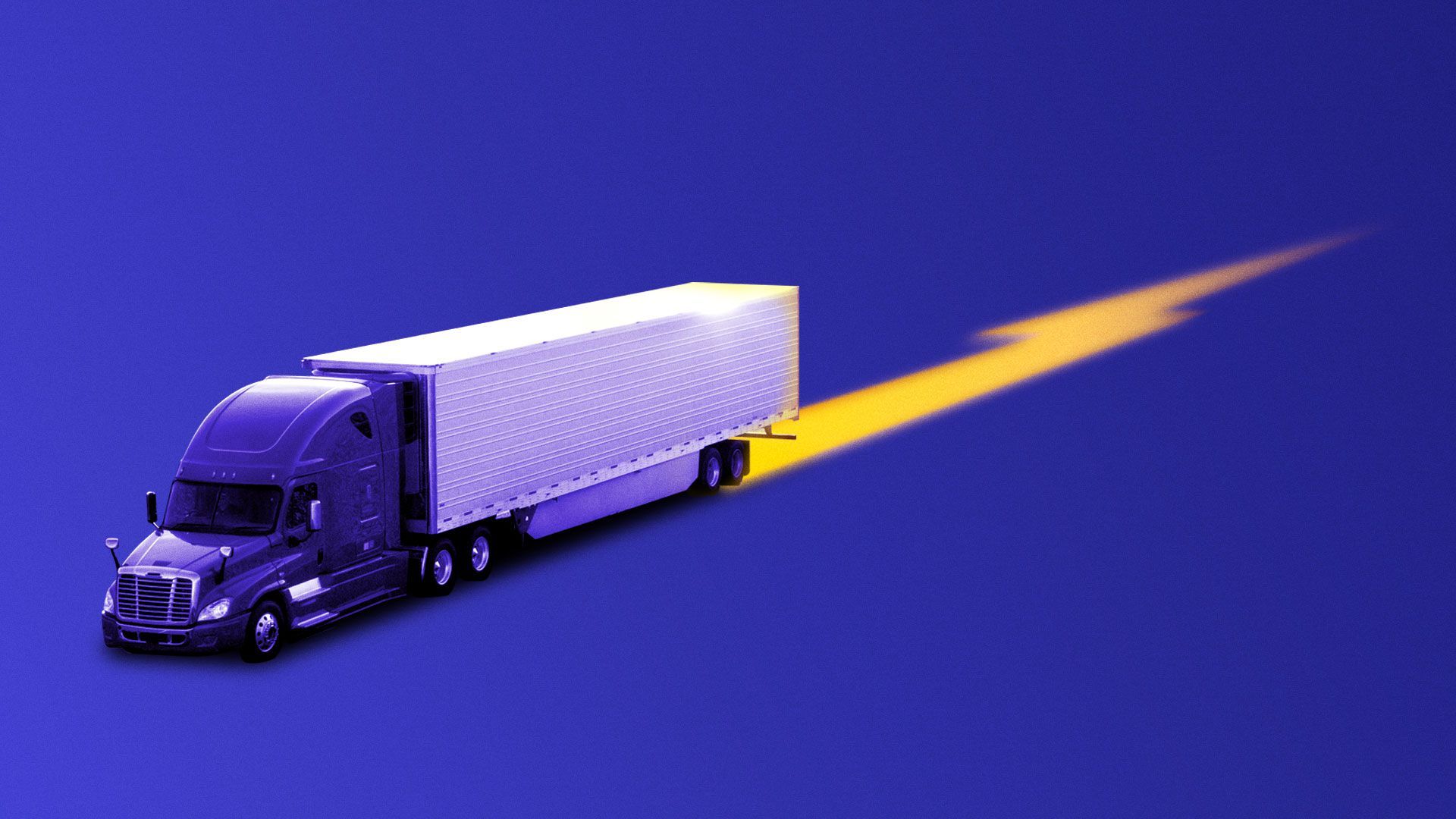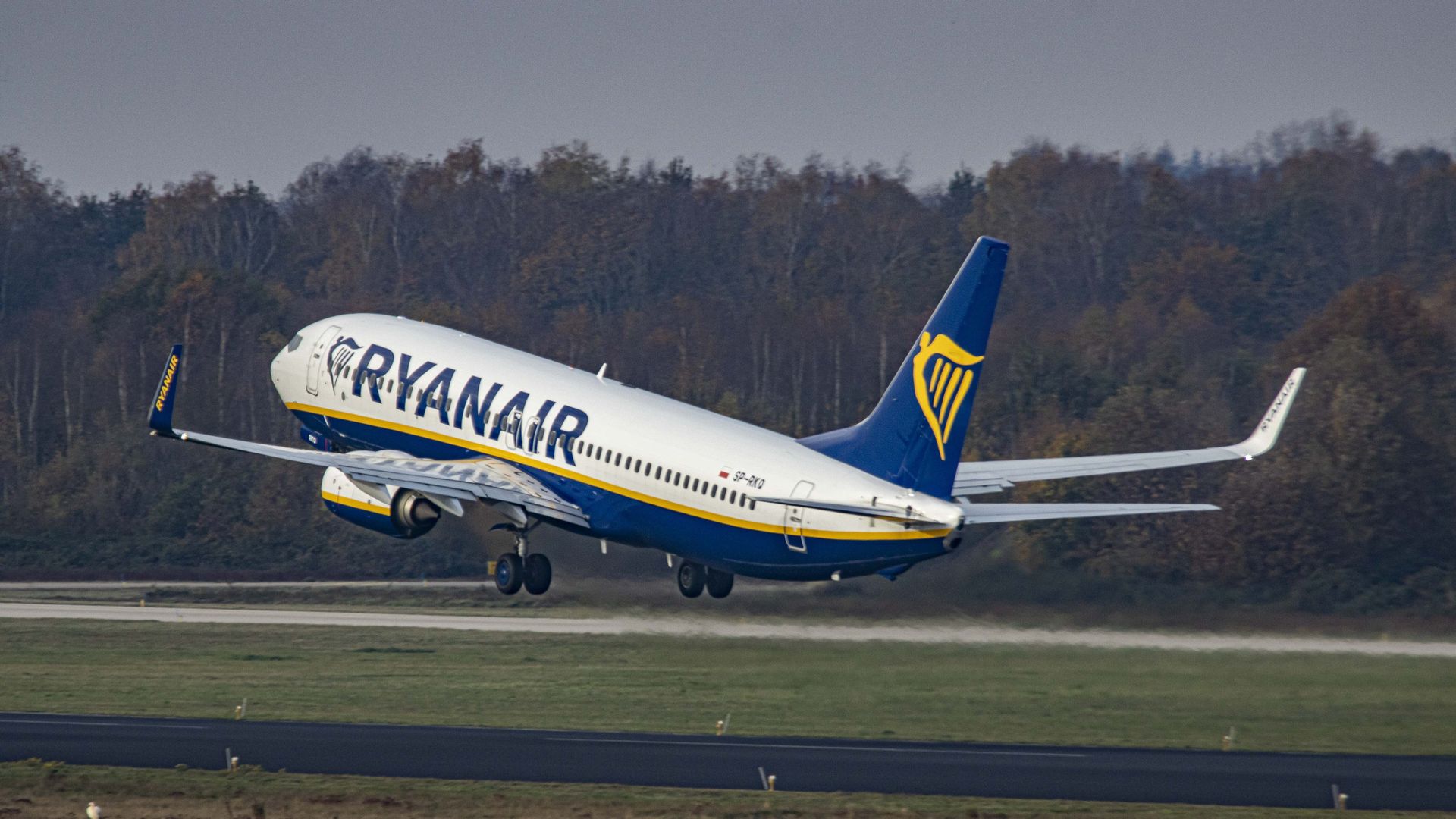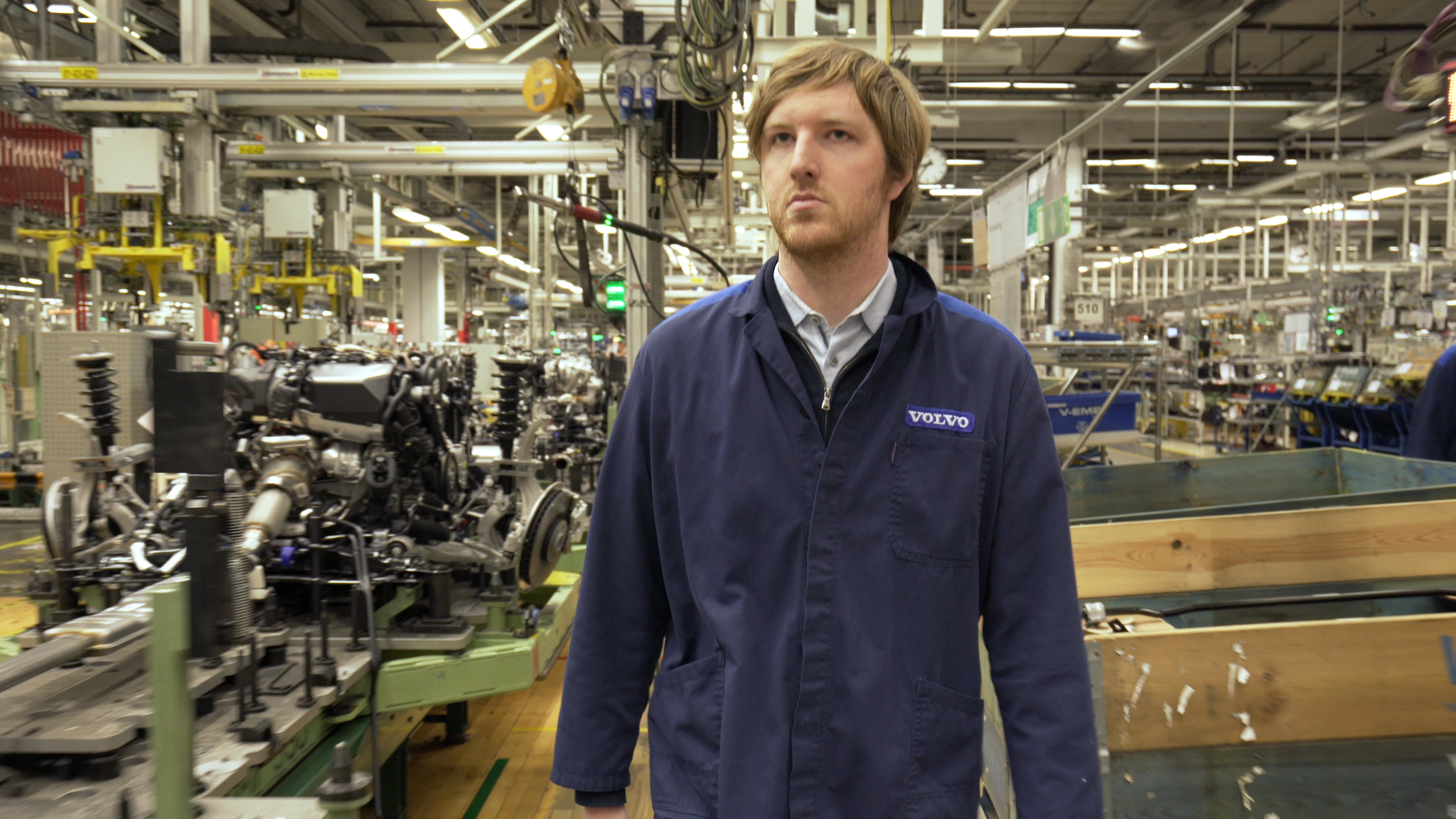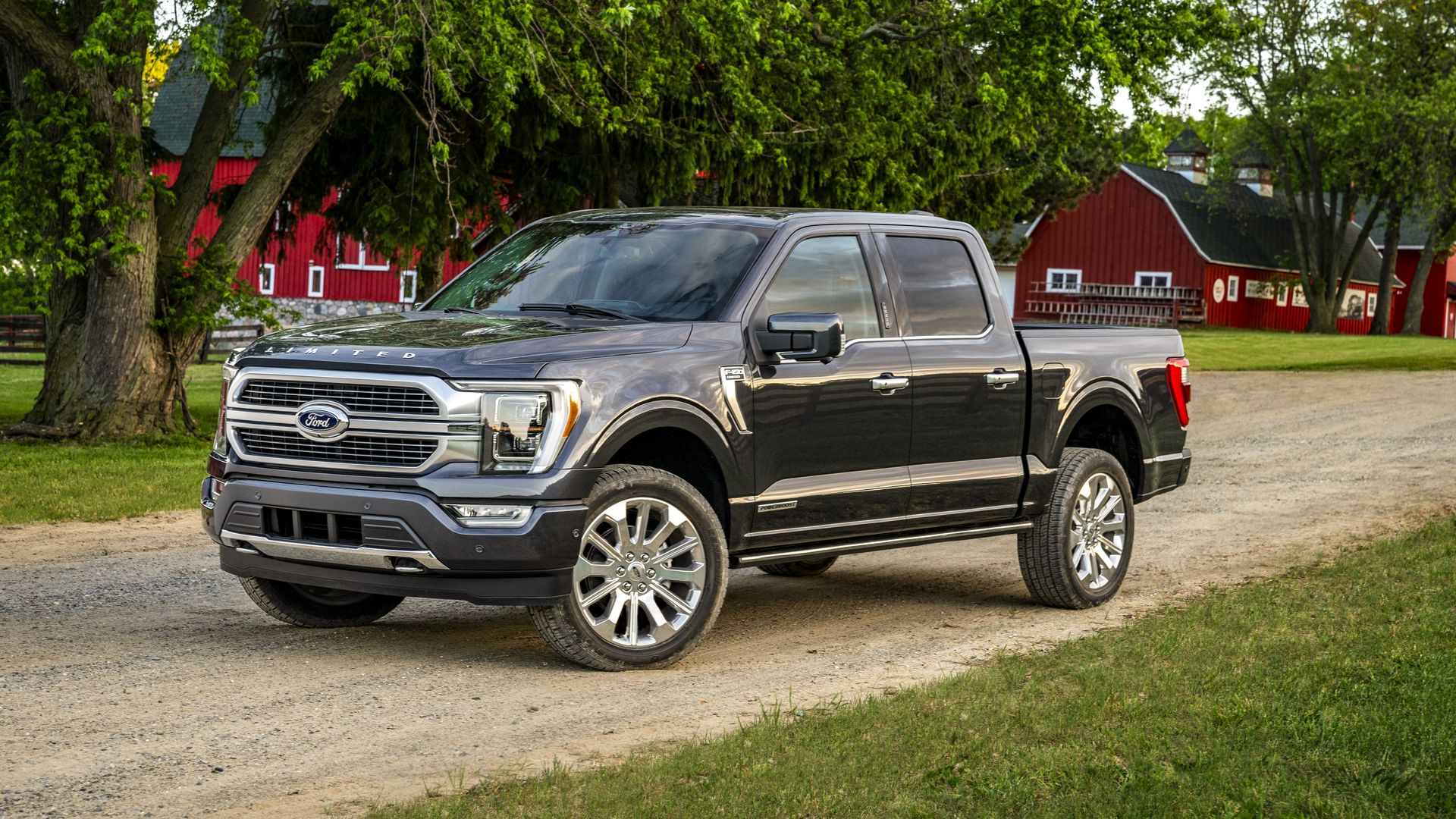| | | | | | | Presented By the Boeing Company | | | | Axios Navigate | | By Joann Muller ·Dec 04, 2020 | | Happy Friday! Today we explore the buzz about electric trucks and learn why you can't bring your "emotional support" pet on a plane anymore, unless it's a dog. Today's Smart Brevity count: 1,278 words, a 5-minute read. | | | | | | 1 big thing: The workaday path to the electric vehicle era |  | | | Illustration: Eniola Odetunde/Axios | | | | The electric vehicle revolution is underway, led by the un-sexiest of plug-in models: the commercial truck. Why it matters: Growing demand for cleaner trucks means 2021 will be a pivotal year for electric vehicles — just not the kind you might have expected. Driving the news: With transportation now the biggest source of greenhouse gas emissions, governments and corporations are embracing new sustainability goals. - Fifteen states and Washington, D.C. this summer announced a plan to require all new trucks, vans and buses in their states be electric by 2050.
The impact of the pandemic is adding to the urgency: E-commerce has exploded while people have been staying home, putting more polluting delivery trucks on the road. - "Amazon could become the world's single biggest entity for emissions" — aside from China's coal plants, Morgan Stanley analyst Adam Jonas told attendees at an online conference Thursday.
- That's why the giant retailer's sweeping climate change strategy includes an aggressive plan to deploy 100,000 electric delivery trucks by 2030, he noted.
What's happening: Leading truck manufacturers are rolling out a bevy of electric models ranging from local delivery trucks and beverage haulers to garbage trucks and long-haul semis. - The latest is Volvo's new VNR electric model, a regional hauler with a range of up to 150 miles that can be recharged in a little over an hour. Launched Thursday after two years of pilot tests, it will go into production early next year in Virginia.
- Freightliner, Tesla and China's BYD are among other companies bringing electric big rigs to market in the next year or so.
- At the other end of the spectrum, Ford just introduced its E-Transit cargo van, which goes on sale late next year, and GM is reportedly planning an electric delivery van, too.
- A slew of startups are also rushing into the electric truck space, including Rivian, Arrival and Nikola.
One company that hasn't gotten much attention until now is Lion Electric, which dominates the electric school bus market with 300 already on the road. It now has an expanding lineup of electric trucks, too. - The Canadian company has been around since 2008 — about as long as Tesla — and just announced plans to go public via reverse merger with Northern Genesis Acquisition, a special purpose acquisition company (SPAC).
- After the deal, which gives it access to $500 million in new capital, Lion will be worth an estimated $1.9 billion.
- Lion has a multi-year purchase agreement with an unnamed customer to buy up to 2,500 electric trucks between now and 2025. As part of the deal, Lion issued the customer a warrant to buy just under 20% of the company.
- The first 10 trucks are going to Amazon. Among other companies that have placed orders is Molson Coors Beverage Co.
- The trucks will be manufactured at Lion's Canadian facility, which can produce up to 2,500 per year, but with funds raised through the SPAC deal, Lion plans to open a much larger factory in the U.S.
The bottom line: Consumers might still be reticent about electric cars, but the momentum for electric trucks is growing. |     | | | | | | 2. A double dose of good news from Boeing |  | | | Ryanair low cost airline Boeing 737-800 aircraft as seen over the runway. Photo: Nik Oiko/SOPA Images/LightRocket via Getty Images | | | | Boeing got a huge vote of confidence this week from Europe's Ryanair, which added 75 more planes to an existing order for Boeing's controversial 737 Max. Why it matters: The purchase will no doubt boost Boeing's effort to revive sales of its best-selling airplane after it had been grounded for 20 months over safety concerns following two crashes. The big picture: Thursday's announcement was accompanied by encouraging messages from both companies about the industry's outlook in the wake of breakthrough vaccines for COVID-19. - "This vaccine came along a little faster than most folks thought, which means our timeline for recovery is a little more aggressive today" than the three to five years officials had been projecting last spring, Boeing CEO David Calhoun told reporters Thursday.
- "Vaccines are coming in the first quarter of next year," Ryanair CEO Michael O'Leary said. "There is going to be a very strong recovery. I have been waiting for this aircraft for five years."
The bottom line: After what Calhoun called "one tough year," there's finally some good news for the aviation industry. |     | | | | | | 3: Luminar's 25-year-old founder is now a billionaire |  | | | Luminar Technologies founder Austin Russell, 25, at a Volvo Cars factory. Photo: Luminar | | | | Luminar Technologies, which makes laser sensors for self-driving cars, started trading as a public company on Thursday, turning its 25-year-old founder Austin Russell into an instant billionaire. Why it matters: Luminar is emerging as one of the leading suppliers of lidar technology, which uses laser beams to give vehicles a three-dimensional view of the road. - Volvo is using Luminar's lidar sensors on its first hands-free models coming in 2022, and Luminar has partnerships with Daimler Trucks and Intel's Mobileye unit.
What to watch: Luminar has proven its technology works, and Russell says multiple automakers are developing software to work with its sensors ahead of potential deployment. - The challenge is whether Luminar can produce the complex laser devices at a mass scale.
- Russell tells Axios the company has perfected the manufacturing process and is close to announcing a deal with a contract manufacturer in Mexico.
Fun fact: Luminar's apt ticker symbol is "LAZR." |     | | | | | | A message from the Boeing Company | | Developing new solutions across the industry | | |  | | | | Across the industry, we continue to work with airlines, health organizations, regulators and other manufacturers around the world to create a multilayered approach to help passengers reboard and reconnect with confidence. See how the industry is coming together. | | | | | | 4. Uber close to unloading its flying taxi business |  | | | Illustration: Sarah Grillo/Axios | | | | Uber is in advanced talks to sell its Uber Elevate unit to Joby Aviation, Axios' Dan Primack and Kia Kokalitcheva scooped this week. A deal could be announced later this month. Between the lines: Uber Elevate was formed to develop a network of autonomous air taxis, but to date has been most notable for its annual conference devoted to the nascent industry. - Uber CEO Dara Khosrowshahi has been unloading money-losing operations in an effort to attain profitability for its core ride-hailing and food delivery businesses.
Jobi is backed by Toyota AI Ventures, Intel and JetBlue Technology Ventures. |     | | | | | | 5. Driving the news | | Urban vehicle of the moment: An e-cargo bike (Jennifer A. Kingson — Axios) - What's happening: Electric cargo bikes are silent and emissions-free alternatives to Bobcats and light trucks, and they're increasingly used in cities for deliveries and municipal improvements.
Automakers propose policy changes to speed self-driving vehicle roll-out (Riley Beggin — Detroit News) - Why it matters: With federal action expected next year on new rules for autonomous vehicles, the industry is laying out its own policy roadmap. They want to see a new federal vehicle class for AVs and harmonization of state policies on self-driving cars.
Dogs are the only service animals allowed to fly on passenger planes, DOT rules (Doha Madani — NBC News) - Why it matters: You can no longer bring your "emotional support" pig or peacock onboard.
|     | | | | | | 6. What I'm driving |  | | | 2021 Ford F-150. Photo: Ford | | | | This week I'm driving the 2021 Ford F-150 Powerboost hybrid, a surprisingly impressive pickup truck that delivers everything owners want, plus better fuel economy. The big picture: The hybrid F-150 is no wimpy truck. It can still tow more than 12,000 pounds and carry more than a ton of cargo. But it'll also get you 20% better fuel economy at an EPA-rated 24 mpg, meaning you can go 700 miles between fill-ups. How it works: Some hybrids are marketed as high-performance models, but not the F-150 hybrid. It's all about better efficiency. - Ford paired its twin-turbocharged 3.5-liter V-6 with a 47-horsepower electric motor and a 1.5 kWh lithium-ion battery.
- The electric motor doesn't provide acceleration on its own, but is designed to let you cruise for short periods on electricity alone.
- The combined output — 430 horsepower and 570 pound-feet of torque — is better than Ford's popular 3.5-liter EcoBoost powertrain.
- In the $68,095 Lariat trim I drove, the hybrid was a $3,300 option.
What's cool: The hybrid also comes with an onboard generator in the truck bed that puts out 7.2 kilowatts of electricity, enough to run all your power tools at a worksite. It even works on the go to recharge batteries between jobs. - Inside, the shifter folds flat into the console, making room for a fold-out worktable that transforms your truck into a mobile office.
- The F-150's standard 8.0-inch center touchscreen can be upgraded to a giant 12.0-inch unit that's easy to operate.
- Ford's Sync 4 infotainment software comes with WiFi and over-the-air updates.
What's next: Aside from Ford's current CoPilot 360 assisted-driving technology package, the F-150 hybrid I drove came with a $995 "Active Drive Assist prep package" to enable hands-free highway driving. - The software, still in development, will be added via an over-the-air update next summer for an additional fee.
|     | | | | | | A message from the Boeing Company | | Developing new solutions across the industry | | |  | | | | Across the industry, we continue to work with airlines, health organizations, regulators and other manufacturers around the world to create a multilayered approach to help passengers reboard and reconnect with confidence. See how the industry is coming together. | | | | | | Axios thanks our partners for supporting our newsletters.
Sponsorship has no influence on editorial content. Axios, 3100 Clarendon Blvd, Suite 1300, Arlington VA 22201 | | | You received this email because you signed up for newsletters from Axios.
Change your preferences or unsubscribe here. | | | Was this email forwarded to you?
Sign up now to get Axios in your inbox. | | | | Follow Axios on social media:    | | | | | |









No comments:
Post a Comment